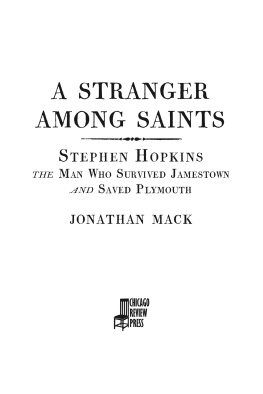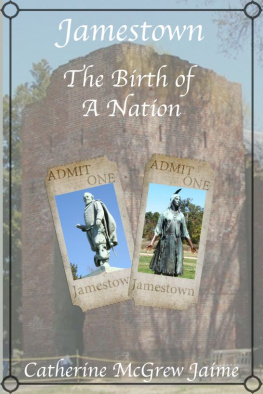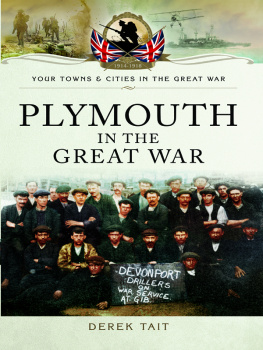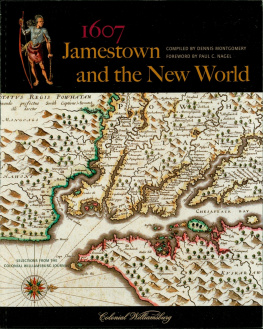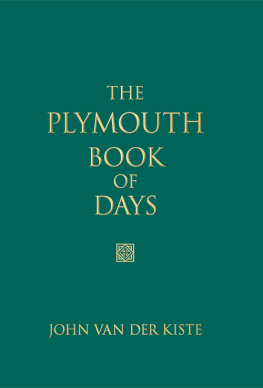Sommaire
Pagination de l'dition papier
Guide
Copyright 2020 by Jonathan Mack
All rights reserved
Published by Chicago Review Press Incorporated
814 North Franklin Street
Chicago, Illinois 60610
ISBN 978-1-64160-093-4
Library of Congress Cataloging-in-Publication Data
Names: Mack, Jonathan D., 1966 author.
Title: A stranger among saints : Stephen Hopkins, the man who survived Jamestown and saved Plymouth / Jonathan Mack.
Other titles: Stephen Hopkins, the man who survived Jamestown and saved Plymouth
Description: Chicago, Illinois : Chicago Review Press, [2020] | Includes bibliographical references and index. | Summary: The fascinating story of Stephen Hopkins, perhaps the most important person on board the Mayflower when it sailed from England in 1620. The only member of the expedition who had been across the Atlantic before, as a survivor of the colony at Jamestown, Hopkins played a vital role in bridging the divide of suspicion between the Pilgrims and their Native American neighbors. Without him, these settlers would likely not have lasted through their brutal first year. Provided by publisher.
Identifiers: LCCN 2019051058 (print) | LCCN 2019051059 (ebook) | ISBN 9781641600903 (cloth) | ISBN 9781641600910 (adobe pdf) | ISBN 9781641600934 (epub) | ISBN 9781641600927 (kindle edition)
Subjects: LCSH: Hopkins, Stephen, 15811644. | MassachusettsHistoryNew Plymouth, 16201691. | ColonistsMassachusettsBiography. | Indians of North AmericaFirst contact with EuropeansMassachusetts. | New EnglandHistoryColonial period, ca. 16001775.
Classification: LCC F68.H8 M33 2020 (print) | LCC F68.H8 (ebook) | DDC 974.4/020922 [B]dc23
LC record available at https://lccn.loc.gov/2019051058
LC ebook record available at https://lccn.loc.gov/2019051059
Typesetting: Nord Compo
Printed in the United States of America
5 4 3 2 1
This digital document has been produced by Nord Compo.
To my mother and father
AUTHORS NOTE
THE DETAILS OF STEPHEN HOPKINSS LIFE are sometimes sparse. He left no diary or journal. And while several others wrote firsthand accounts of the colonies at Jamestown and Plymouth, they are individual perspectives on events that could be viewed from a thousand different angles.
In order to tell the complete story of what happened four centuries ago, I have sometimes bridged the gaps by providing what I believe to be the most plausible explanations drawn from discrete and fragmentary facts collected from a wide range of sources. These elements are always identified as historically informed inferences, and they are based on my understanding and analysis of the record.
When practical and the meaning uncontroversial, language quoted from primary sources has been rendered into modern English for ease of understanding. Where text was emphasized in the original, it is set in italics; where I have added emphasis, it is set in boldface.
In Hopkinss time, England and its colonies in America used the Julian calendars method of tracking dates, known as the Old Style. The Gregorian calendar, which is the most widely used calendar today and known as the New Style, was not embraced by the British Empire until 1752. Adding ten days to a given seventeenth-century date in the Old Style of primary sources will render the date in the New Style of today. Thus, June 6, 1644, on the Julian calendar would correspond to June 16 of the same year on the Gregorian calendar. In addition, the change from Julian to Gregorian shifted the start of the year from March 25 to January 1. Any date noted before March 25 in the Old Style, therefore, would be included in the previous year: e.g., February 1622 in the Old Style would correspond to February 1623 in the modern reckoning. I have chosen to keep the days of the month in the Old Style Julian calendar but to transpose the years into the New Style Gregorian calendar.
Any mistakes are mine and mine alone.
INTRODUCTION
Your tale, sir, would cure deafness.
The Tempest (c. 1611), act 1, scene 2
IN 1 609 A MAN NAMED STEPHEN HOPKINS joined a voyage to Englands colony at Jamestownone so ill-fated that it inspired William Shakespeares play The Tempest. After being sentenced to death for mutiny while shipwrecked on Bermuda, Hopkins narrowly escaped and sailed on to the settlement, located in present-day Virginia. He eventually made his way back to England, and in 1620 he signed on to a new colonial venture. This second undertaking was organized by a group of London speculators who hoped to establish another colony in the Americas.
Along with sixty others, he boarded a merchant ship called the Mayflower and there met a group of religious radicals, Puritans who so wanted to separate themselves from the Church of England that they decided to sail to the other side of the world. The Mayflowers journey, of course, became one of Americas iconic foundational stories, and its passengers, dubbed by subsequent generations the Pilgrim Fathers, have been examined, feted, and criticized by historians ever since. Despite creating endless volumes of research, scholars have largely overlooked Stephen Hopkins, even though he was a key figure in the Pilgrims struggles and triumphs in the New World. Certainly, he was the most knowledgeable about the challenges they would ultimately face.
Of the Mayflowers passengers, Hopkins was the only one whod been across the Atlantic before. He was the only person whod seen the new continent, tasted its waters, fished its streams, or tilled its soil. He was the only person whod lived through its frigid winters and sweltering summers. He was the only one whod seen a working colony firsthand and experienced the catastrophes that could result when it was governed by inept or misguided principles. He was the only one whod met with the New Worlds native peoples and understood the complexities of their societies, which were utterly foreign to his fellow passengers and often dismissed as barbarous.
Because of his unique experience on Bermuda and then in Jamestown, Hopkins might have been the most important person on board the Mayflower when it sailed from England. The Pilgrims encountered their own tempest, a furor that started when they anchored off Cape Cod and continued through their first twelve months in North America. Tested by hardships and setbacks, the entire enterprise hung in the balance, and it was during these trials that Hopkins demonstrated his value, both to his fellow Pilgrims and to history. Without him, they would not likely have lasted through that brutal year.
It has been suggested that Shakespeare based The Tempests rowdy and frequently intoxicated servant Stephano on Stephen Hopkins. Unlike Stephano, whose role is reprised year after year, Hopkins had his hour upon the stage and then disappeared, mostly lost to history, crowded out by figures such as William Bradford, Myles Standish, and Squanto. Now, four hundred years after the landing of the Mayflower, it is time to reexamine the facts and make clear the singular role Stephen Hopkins played in establishing Plymouth Colony and setting America on its historic path.
HOPKINS AND
THE SEA VENTURE
Mercy on us!
We split, we split!Farewell, my wife and children!
Farewell, brother!We split, we split, we split!
The Tempest, act 1, scene 1
BY MAY 1609 some six hundred prospective English settlers had signed up for an expedition to resupply the struggling colony at Jamestown, which had been established two years earlier. Also on board was Stephen Hopkins, who was about to change the course of his life forever and ultimately help shape the history of the New World.

